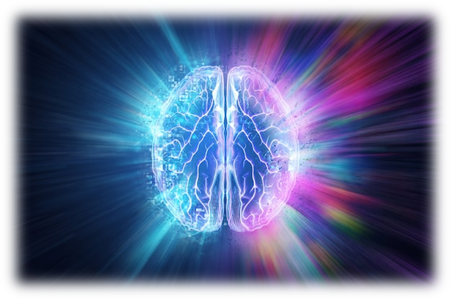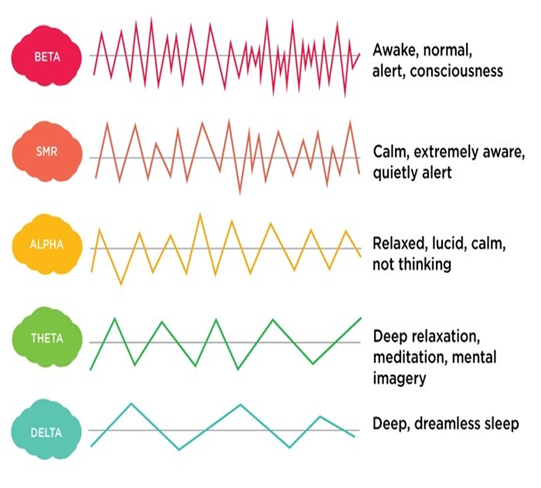Meditation and the Brain
Meditation is a technique used for thousands of years to develop an awareness of the present moment; meditators can focus on the “NOW” and resist wandering thoughts and minds. It’s a mental exercise that involves awareness, focus, connecting the body and the breath, and relaxation, offering several physical and psychological benefits such as reducing stress, and anxiety, allowing better sleep quality, and improving cognitive function.
Sakyong Mipham mentioned: “Meditation is that ability to take a journey with your mind. It’s proactive; we engage. We take a short time to relax and calm ourselves. We want to know our minds; we want to know who we are.” Practicing meditation helps improve our understanding of our minds and how it works. It is a meaningful journey that can help deepen our self-awareness.
Meditation helps you know yourself better.
Meditation is an ancient practice with no cultural or religious affiliation, used by people from all walks of life to experience inner peace and relaxation and reap its other benefits. It’s used by people worldwide to promote a sense of peace, serenity, and physical and mental well-being.
Madhav Goyal mentioned, “Many people have this idea that meditation means sitting down and doing nothing, but that’s not true. Meditation is an active training of the mind to increase awareness”.
The meditation practice involves some breathwork as we learn to pay attention to our breath, and when we do that, we are learning to practice the “now” and remain in the present moment without judgment.
By regularly practicing meditation, you are strengthening your mind and training it for everyday mindfulness. “Mindfulness” is the ability to focus your mind on the present, on the now, letting go of your wandering thoughts, observing yourself, and accepting your emotions without any judgment. Mindfulness is a mindset; meditation is the training to achieve it. For example, during regular days while doing your routine tasks, Mindfulness helps you recognize your wandering thoughts and take control. You might be able to direct your focus and attention to something else you like.
Psychologist and meditation teacher Tara Brach explains: “Mindfulness is a way of paying attention moment-to-moment to what’s happening within and around us without judgment. Meditation is the training of attention which cultivates that mindfulness.”
What happens in our brain during mediation
 The human brain is a complex organ with many nuances. Electric activity remains consistent, whether during your periods of rest, involvement in activities, or meditating. Our brains play a big role in managing our emotions and directing us to eat. It is responsible for dictating when we should feel happy or sad.
The human brain is a complex organ with many nuances. Electric activity remains consistent, whether during your periods of rest, involvement in activities, or meditating. Our brains play a big role in managing our emotions and directing us to eat. It is responsible for dictating when we should feel happy or sad.
Sarah Lazar from Harvard found that eight weeks of meditation increases the cortical thickness in the hippocampus responsible for learning & memory, decreases the brain cell volume in the amygdala responsible for fear, anxiety, and stress, and increases the density of the posterior cingulate responsible for making the mind wander less and help focus more on the now.
Studies showed that during meditation, our brains function in gamma waves. Gamma waves are the fastest of brain waves. Our brains can create new pathways for neurons to flow between where our information flow. Also, gamma is related to expanded consciousness and spiritual emergence giving relaxation, inner peace, and an enlightened state of mind.
What are brain waves?
 Beta waves(14- 30 HZ) it’s our normal waking state and in which we are conscious – think about yourself when you are awake, working, preparing your coffee, driving, studying, or performing ordinary tasks as you go about your everyday business. It is associated with concentration & alertness. When you are actively engaged in any activity, the brain generates a beta wave. During the beta wave, you are also engaged in problem-solving, fight or flight, anxiety, judgment, and decision making
Beta waves(14- 30 HZ) it’s our normal waking state and in which we are conscious – think about yourself when you are awake, working, preparing your coffee, driving, studying, or performing ordinary tasks as you go about your everyday business. It is associated with concentration & alertness. When you are actively engaged in any activity, the brain generates a beta wave. During the beta wave, you are also engaged in problem-solving, fight or flight, anxiety, judgment, and decision making- Alpha Waves(8- 14 HZ) are associated with relaxation, you don’t feel stressed anymore, yet you are still awake, focused, and experiencing a lot of mental activities. It’s like going home at the end of the day after finishing work and sitting down relaxed, watching TV, or engaging in activities that relax the mind and body as meditation. A Blog in Psychology Today proposes that “Neuroscientists made a correlation between an increase of alpha brain waves through “ mindfulness” and “meditation” and the possibility to significantly reduce feelings of depression and develop creative thinking skills for the long-term.
- Theta Waves(4-8 HZ) associated with sleep, and it’s like when you are falling asleep and getting ready to go to bed. During mediation, theta waves are most abundant in the frontal and middle parts of the brain. In theta, it’s like we are in a dream, our intuition is high, and we have access to information beyond our conscious awareness. Its where we hold our negative emotions, fear, worry, sadness, anxiety, memories
- Delta Waves(0.1-4 HZ) associated with deep and dreamless sleep. During the delta state, anti-aging hormones such as DHE and melatonin are released, slowing the aging process and possibly improving well-being and cognitive function. Also, healing and regeneration are stimulated during this state, which is why sleep is vital to the healing process.
 Gamma (30 -100 HZ) is the fastest frequency than any other brain wave. Regular meditators are most likely to reach the gamma state. Research examining the brain activity of experienced Tibetan meditation practitioners has revealed that their generated gamma waves were two to three times higher than usual, even though they were in a deep & tranquil state of meditation. This is a remarkable indication of extreme consciousness. Waves from different parts of their brains were functioning in remarkable harmony. When you meditate, it’s your brain waves that will take care of themselves. Scientifically, meditation works.
Gamma (30 -100 HZ) is the fastest frequency than any other brain wave. Regular meditators are most likely to reach the gamma state. Research examining the brain activity of experienced Tibetan meditation practitioners has revealed that their generated gamma waves were two to three times higher than usual, even though they were in a deep & tranquil state of meditation. This is a remarkable indication of extreme consciousness. Waves from different parts of their brains were functioning in remarkable harmony. When you meditate, it’s your brain waves that will take care of themselves. Scientifically, meditation works.
Conclusion There are many benefits of regularly practicing meditation: Stress reduction, anxiety management, improving focus, memory & performance, self-awareness, inner peace and spirituality, strengthening the immune system, emotional healing, letting go of negative thoughts, confidence, and much more.
